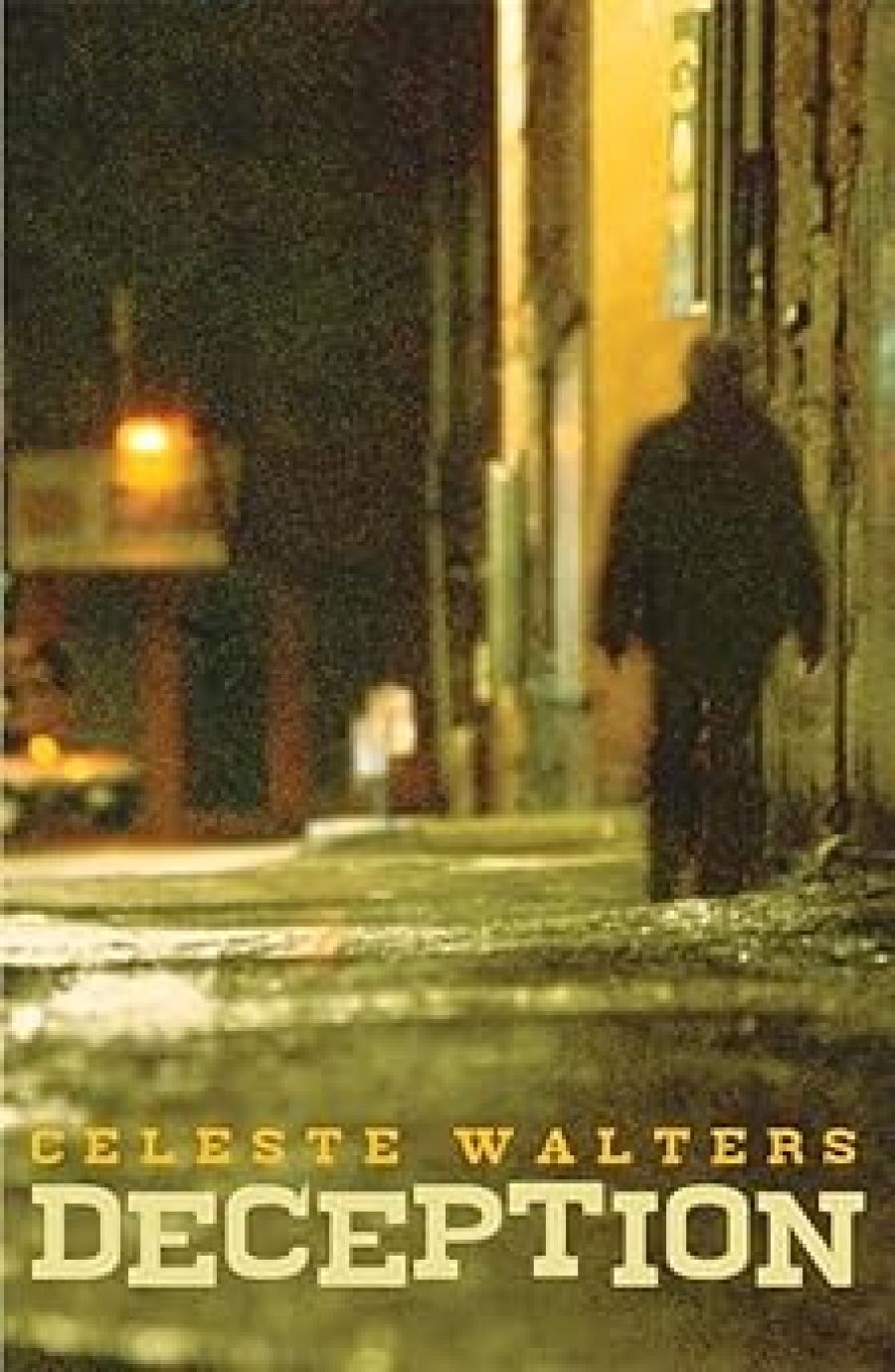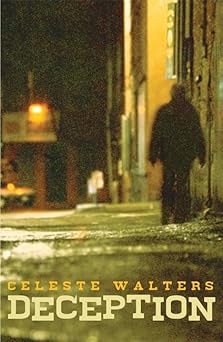
- Free Article: No
- Contents Category: Young Adult Fiction
- Review Article: Yes
- Article Title: Lies and silence
- Online Only: No
- Custom Highlight Text:
‘Reading provides a temporary stay from hate and anger. From pain,’ proposes Celeste Walters’s teenage protagonist, Josh Sim. Yet, as a novel, Deception is far from escapist literature. Despite being set in an imaginary city, this is not the material of fantasy: Walters’s work reveals the world as a gritty, desolate and unjustly cruel place.
- Book 1 Title: Deception
- Book 1 Biblio: UQP, $18.95 pb, 331 pp
- Book 1 Cover Small (400 x 600):

- Book 1 Cover (800 x 1200):

Divided into three seasonally titled sections, Deception provides an insight into one year of momentous change in the lives of its central characters: Josh, a Year 12 student; Elizabeth, his factory-working mother; and grandfather Harry. The story is told with charming immediacy, in the present tense, and focuses on the personal and social struggles of the city and its inhabitants.
As Josh battles the demands of study and the emotional turbulence of adolescence, a larger community conflict looms in the forced state amalgamation of The Grizzlies, Pebble Creek’s local football team. The catalyst of this merger is the despised Kenneth Cullinan, a character who seems to epitomise destructive aspects of contemporary capitalist society. When the lives of Elizabeth and Kenneth become curiously entangled, she launches a campaign of dishonesty to keep the knowledge of her unethical liaison private, a series of lies that, beginning on a societal plane, ultimately impact on her family in a grave and personal way.
Josh muses, ‘Whether you start with the big picture and work back or with the little picture and work forward, you get the same result. Lies and silence.’ The structure of Walters’s text exercises a similar claim. Whether it focuses on the everyday existence of its characters or on the greater movements in their community, the same themes are consistently reiterated. The enduring focus of Deception, established immediately within the opening chapters, is the old world versus the new. The quaint parochial image of Harry on his bicycle is juxtaposed with descriptions of commercial and industrial developments that interrupt the ‘scenes from a calendar’ landscape. Symbols of gloomy cold and decay, such as ‘mud and sludge, on the moving carpet of leaves’ or ‘grey water, grey pitter-pattering rain’, also establish a strong atmosphere of doom and foreboding, heralding a future of tragic events in the characters’ lives.
Walters’s use of adjectives is rich yet potentially overpowering, particularly as her sentences can be lengthy. However, the extreme and almost photographic detail of some descriptions is contrasted by others, such as a smile lighting up a room ‘brighter than sunshine’, which dissolve into cliché, making the text at times stylistically inconsistent. Similarly, Deception is marketed as a novel for young adults, yet its complex language – with words such as ‘doppelgänger’, ‘duplicitous’, ‘sartorial’ and ‘presentiment’ used freely and without explanation – definitely make it a text for the more mature sector of a young audience.
The most successful application of this linguistic complexity and descriptive detail is found in Walters’s unique profiles of each character. Interestingly, she uses the first section of the novel to introduce seemingly disparate individuals whose lives begin to collide in a series of dramatic narrative peaks. With a strong moral stance on the pitfalls of greed and numerous statements on the capacity for wealth to corrupt personal ethics, the story also evolves into a conventional case of ‘good versus evil’, where villains such as Kenneth Cullinan are punished with misfortune in a traditional way. Predictably, the narrative often climaxes in scenes of shocking violence or unexpected death.
While at times unadventurous in a narrative sense, the characters resist a polarised definition and are realistically contradictory, staying true to the text’s affirmation that ‘in one way or another we are all subjects for the microscope, insecure, inarticulate, desperate for affection – a step away from plunging over’. The bad are shown to contain fragilities, and the good are sometimes flawed. Even central characters such as Josh and Elizabeth, with whom we are asked to identify and empathise, can be selfish and horrifying: Josh’s dispassionate treatment of love-interest Annabelle, and Elizabeth’s disloyal connection with Cullinan, are two such examples of their paradoxical behaviour. The characters’ depth is also enhanced by intense passages of self-reflection and by the use of quotation. Elizabeth’s citation of Pablo Neruda is an interesting and powerful reference that deepens our understanding of her internal self, yet this seems almost an orphaned element in the novel, a small injection of emotional resonance left largely unexplored.
One of the most compelling elements of Deception is its bleak portrayal of the city’s criminal underbelly through Josh’s temporary forays into nightmarish homelessness. We are shown how swift and easy it is to slip into that ‘island of personal hell’, which he finds to be inhabited by people of many different backgrounds and social standing who have, for a myriad of reasons, found themselves on the streets of a city that ‘is like rotting mackerel in the moonlight; it glitters and stinks’.
Despite occasional stylistic inconsistencies, Deception has a strong narrative momentum and a pleasing resolution. Walters’s draws together an investigation of the positives and negatives of personal and societal development by exploring the troubled growth of a city and a son.


Comments powered by CComment